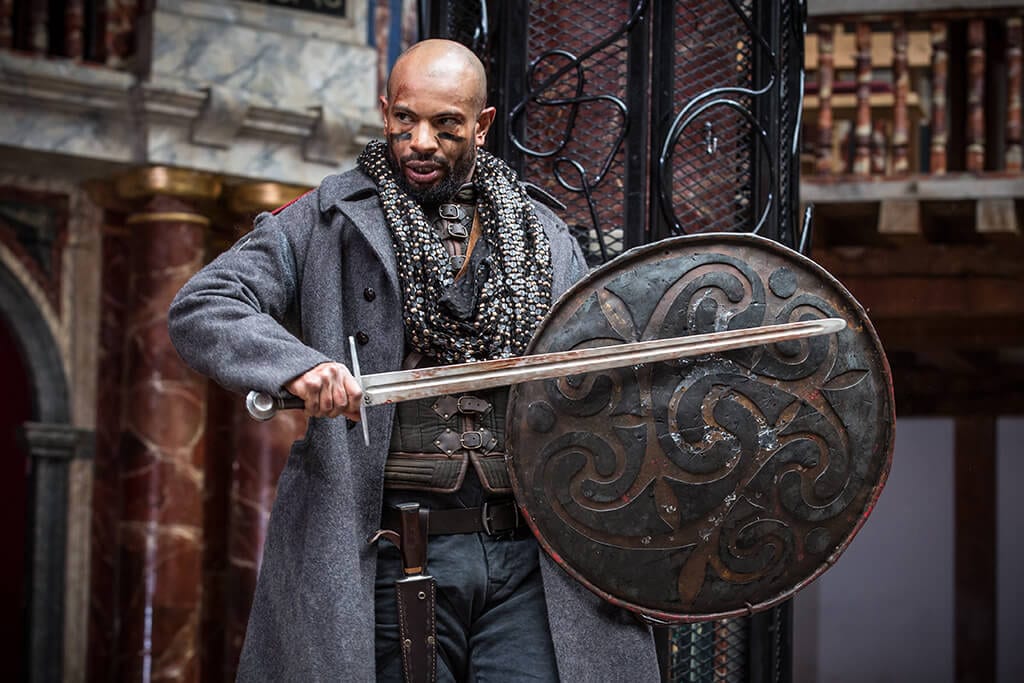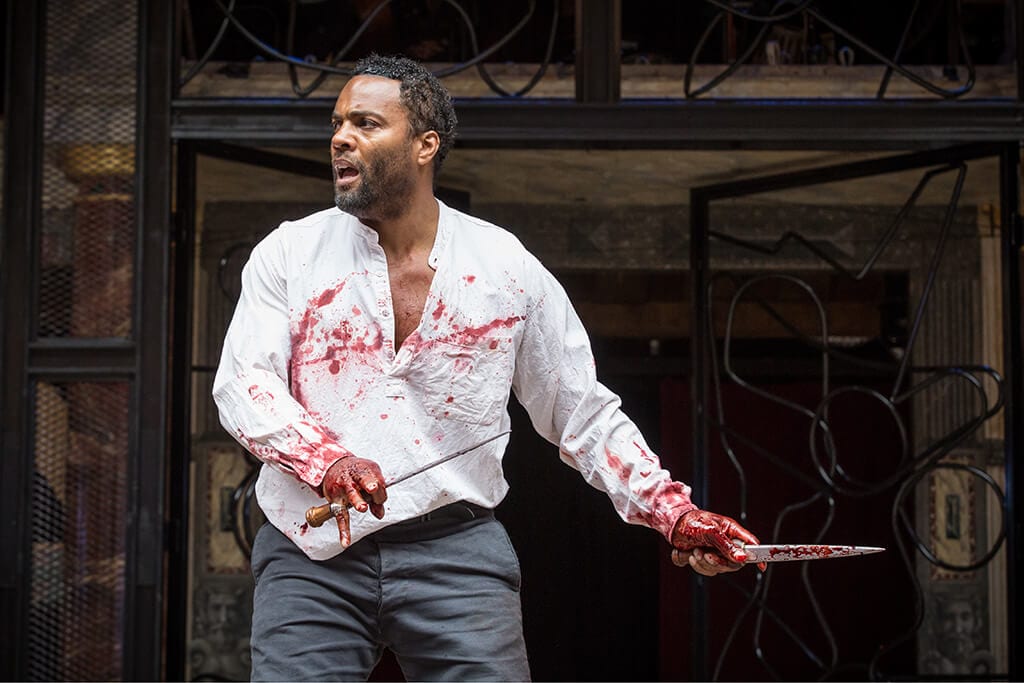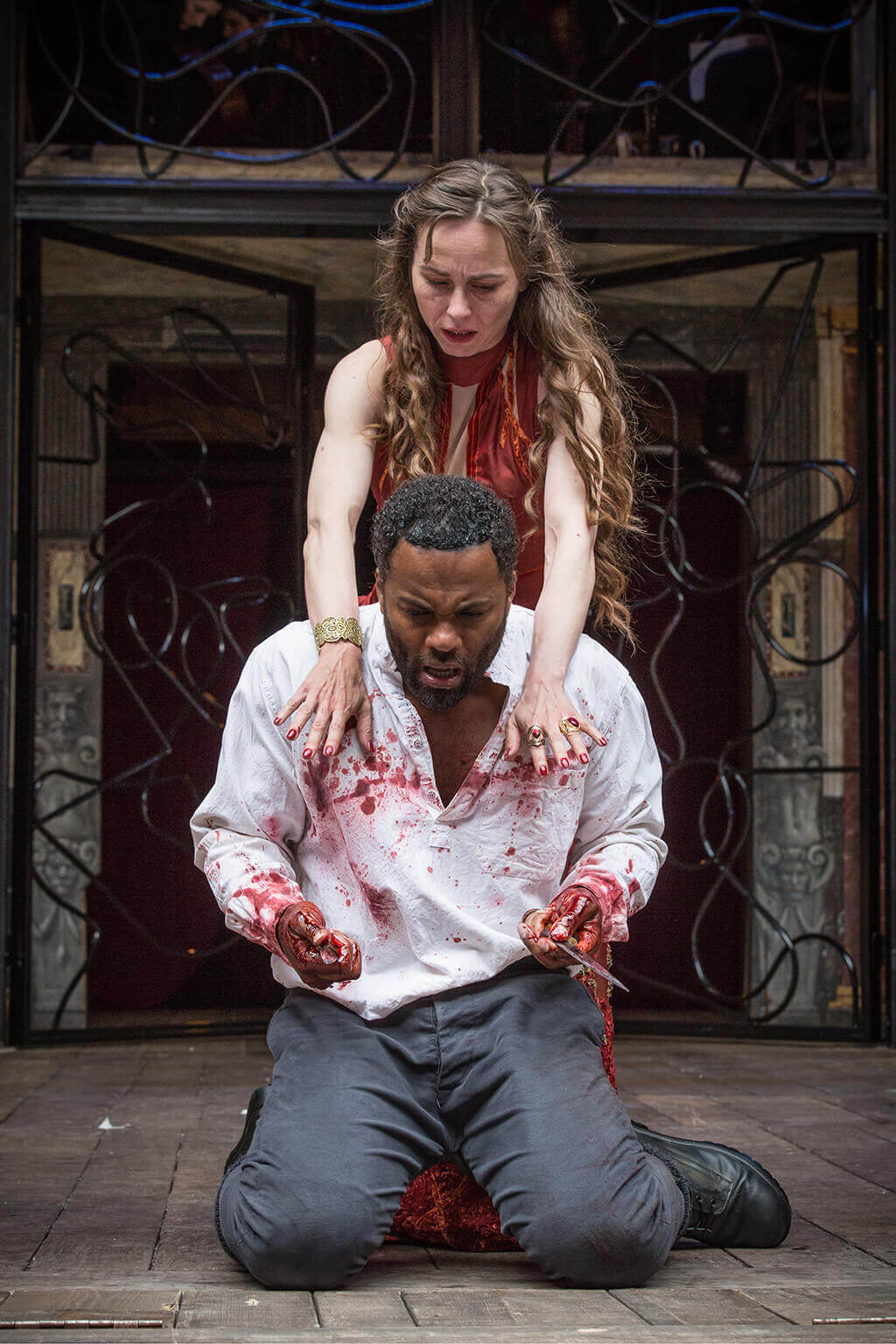The beginning is suitably eerie; the witches rise amidst smoke and darkness from the heap of dismembered bodies. They hiss and use the bloody limbs to build caricatures while Jocelyn Pook’s dark and haunting music in the background adds to the enchantment. The opening promises of an unnerving production, unfortunately it doesn’t quite succeed as it’s saddled with a multitude of identities.
Ray Fearon’s Macbeth is powerful; he’s like a vigorous lion striding across the stage and he encapsulates the contradiction of Macbeth’s initial heroism and later treachery, yet he lacks the introspective consciousness that makes the character of Macbeth plausible and tragic. Tara Fitzgerald plays Lady Macbeth and she starts off promisingly, her giddy yet fierce ambition drives her husband to shed blood and take the crown. However she slowly transitions into a stroppy housewife, throwing a drink feebly at Macbeth before overdoing Lady Macbeth’s descent into madness. The supporting performances are also great with the standout being Jermaine Dominique as Banquo, the fierce warrior who begins to suspect Macbeth of regicide.
The production stays away from pinpointing a time in history; the soldiers are dressed in World War I outfits, the ladies in dresses of velvet and lace and Macbeth and Banquo are dressed like warriors. The sets are gothic and made from simple twisted iron, which gives the stage a mechanical feel and a long black cloth is used effectively in the ghost scenes. Attempting to make it more relevant to the 21st century is Nadia Albina’s Porter scene, which is littered with anachronisms from the EU Referendum to a much-applauded dig on Trump. However, as entertaining as the scene is, it only increases to the confused tone of this production.
Macbeth is Shakespeare’s shortest play, but Iqbal Khan’s production stretches it out to almost 3 hours (including an interval). Perplexingly, there are 4 witches instead of 3 which makes no sense and renders the line ‘When shall we three meet again?’ unbefitting. The Macbeths also have a child in this version, a little boy sits on the stage with nothing but a bowl to keep him company; is he the child that could have been? Is he a representation of the innocent children that are flung into battles that they have no part of? Or is he Macbeth reincarnated?
Khan’s Macbeth comes during a time of political instability and power struggles and is suitably placed on stage. Combined with strong performances and an evocative music, the play is bold and entertaining. However, it’s a chaotic production that never decides on its tone or what it wants to be.




